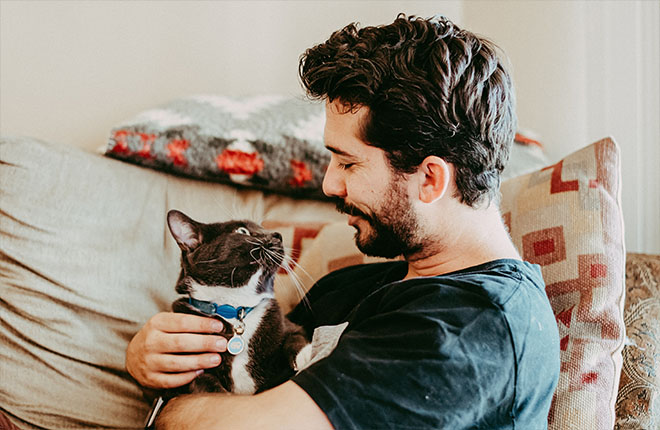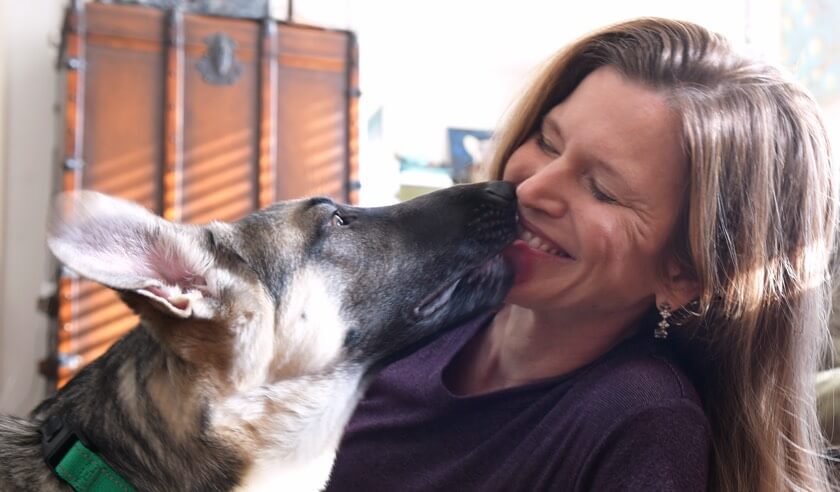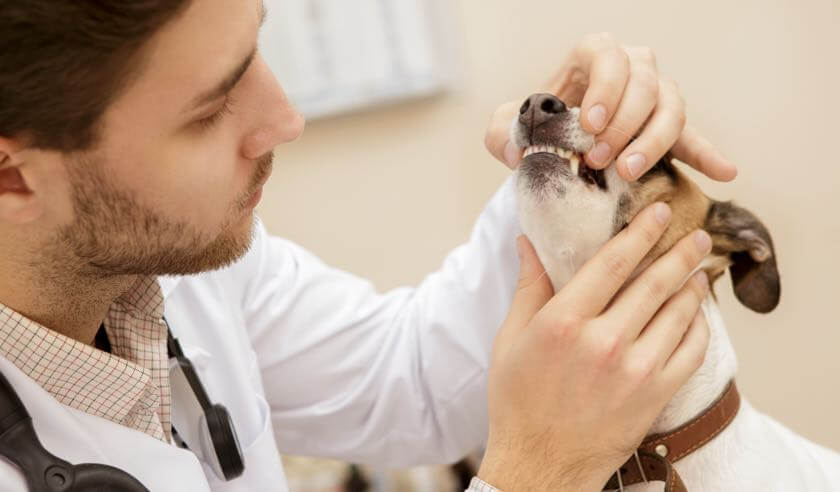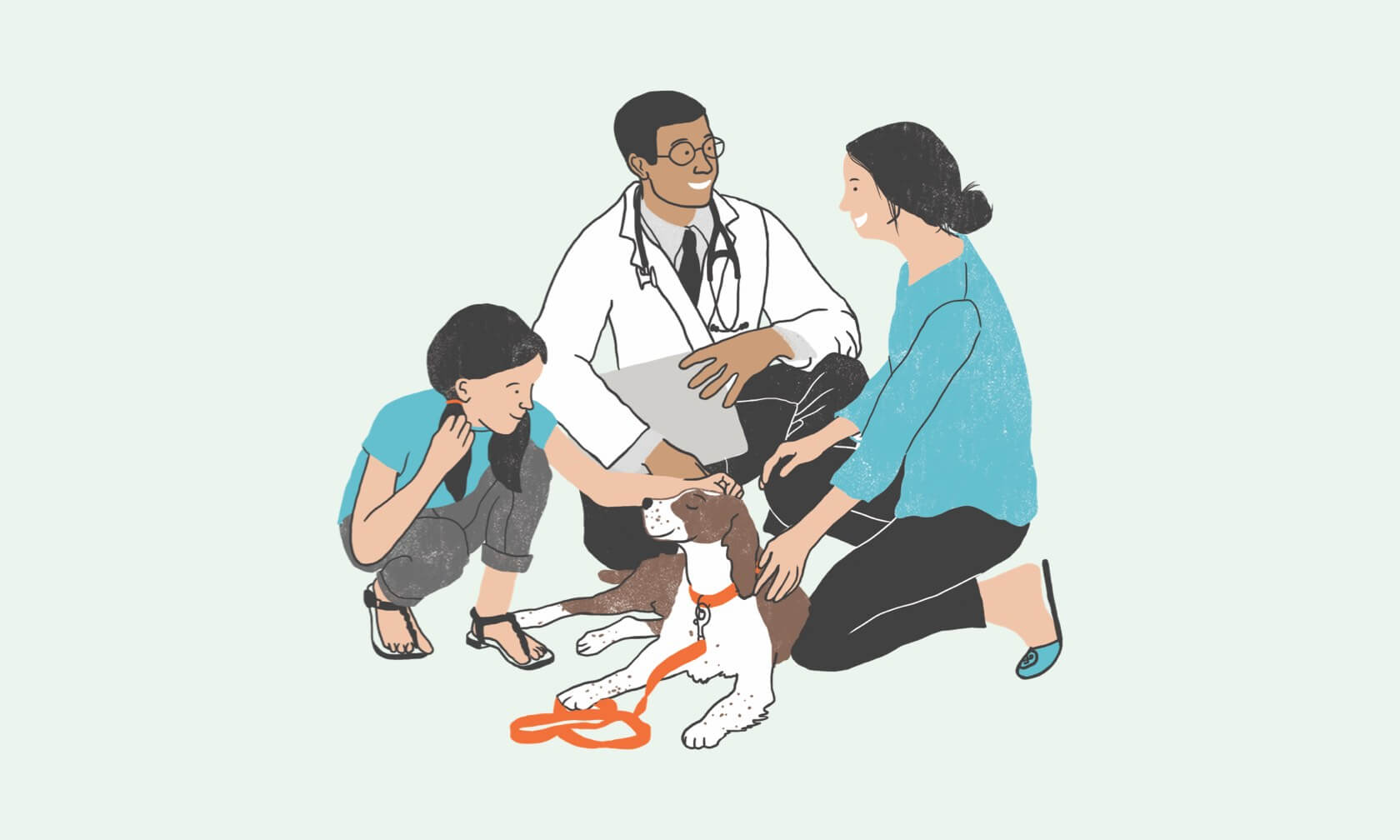There's nothing quite like having a close, cuddly moment with your kitty until their bad breath hits you like a ton of bricks. While bad breath (vets call it halitosis) in cats can be common, that doesn't mean you or your cat should have to live with it. In fact, your cat's stinky breath may be a symptom of dental disease or another health issue, like kidney disease or diabetes[1]. Your veterinarian can help you identify the problem and come up with a treatment plan to get your kitty's breath back to normal and make cuddle time more pleasant for everyone.
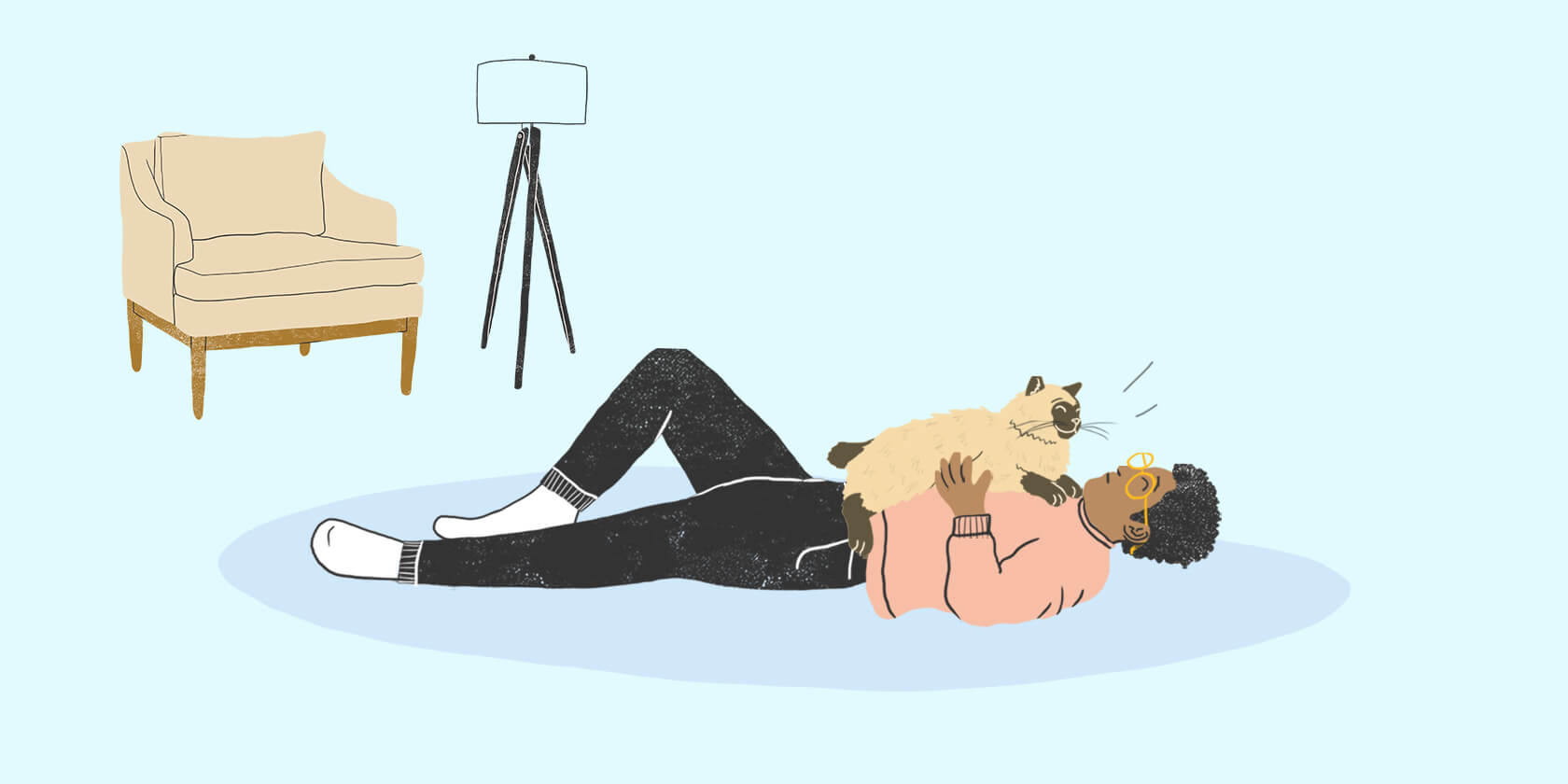
A Veterinary Visit for a Cat with Bad Breath
Does your cat really need to see the veterinarian if they have a little bad breath? Absolutely. Bad breath is usually the sign of dental disease (more specifically, periodontal disease), which is when plaque, tartar, and bacteria accumulate on teeth and can negatively affect the entire mouth. Bad breath could also signify a more serious health condition. Tooth root abscesses, gum infection and inflammation (gingivitis), foreign objects lodged in your cat’s mouth or under their tongue, fractured teeth, kidney disease, and even diabetes can all result in stinky breath[1]. Acting quickly when you notice bad breath gives you the best chance to identify potential problems early and prevent unnecessary illness, pain, and expenses.
At every annual or semi-annual wellness exam, your veterinarian will look at your cat's teeth and gums for signs of fractures, plaque and tartar accumulation, inflammation, receding of the gums, and missing or loose teeth. A more thorough investigation for your cat's bad breath may be involves checking not only the teeth and gums but also under the tongue, the roof of the mouth, all surfaces of the teeth, and palpating the lymph nodes underneath your cat's jaw.
Your veterinarian may ask a few questions about how your cat uses their teeth. Spend some time watching your cat eat and drink, and pay attention to whether they're dropping food, having difficulty chewing, or only "crunching" on one side. Cats with dental pain may drool, paw, or rub one side of their face, or simply become withdrawn, lethargic, or not interested in eating.
If your cat is found to have significant dental disease, your veterinarian will recommend a dental cleaning performed under anesthesia. In advance of the dental cleaning and anesthesia, your veterinarian will likely recommend a bloodwork panel to check for normal organ function and blood cell counts that would let them proceed safely. The bloodwork can also uncover signs of another disease that may be contributing to the bad breath.
Dental Cleaning for Your Cat
Just like having your teeth cleaned at the dentist, cats sometimes need a dental cleaning as well. During this cleaning, your veterinarian will scale (remove) all the debris off the teeth, clean around the gum line, and polish the teeth to make it more difficult for plaque and tartar to attach. Your veterinarian may also recommend dental x–rays, which allow them to assess the health and stability of the entire tooth — more than half of which is below the gumline and not visible — as well as the jaw.
Other Health Problems That Can Cause Bad Breath in Cats
While less common, bad breath in cats can also signify disease elsewhere in the body. Cats with kidney disease, diabetes, or certain viral diseases can all have changes to their breath[1]. Infections of the tongue, gums, tonsils, other mouth tissues, and nearby lymph nodes can also contribute. In some rare cases, cats with something stuck in the roof of their mouth or under their tongue (sewing needles and/or thread are a common culprit) will develop an abscess that can be both painful and smelly.
How to Prevent Bad Breath in Your Cat
Maintaining perfect oral hygiene in your cat can be challenging. In an ideal world, you would brush your cat's teeth every day. For many cats and their owners, this might not be feasible. However, any brushing you can do — even a few times a week — is helpful to mechanically remove debris and bacteria from teeth.
There is special veterinary and cat–specific toothbrush gel — never use human toothpaste, as it can cause stomach upset in cats. While brushing is the single best thing to do to prevent bad breath, there are a few other options you can try:
- Dental treats
- Dental diets
- Dental–friendly toys
Talk to your veterinarian about which products make sense for your individual cat’s needs, and look for the Veterinary Oral Health Council (VOHC) seal of approval on products to ensure they are considered safe and effective.
If your cat has bad breath, it's important to check in with your veterinarian. You can identify problems before they become painful and costly, ensure there are no other health conditions causing their stinky breath, and resolve the issue so you can get back to enjoying some up–close and personal cuddle time with your cat.
ZPC-00986
- Barko, Patrick. Halitosis. BSAVA Manual of Canine and Feline Gastroenterology. 2019. British Small Animal Veterinary Association.
